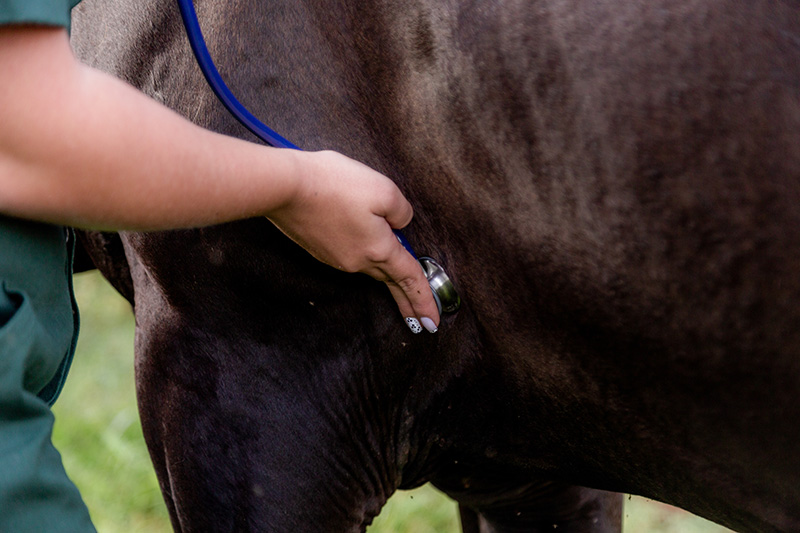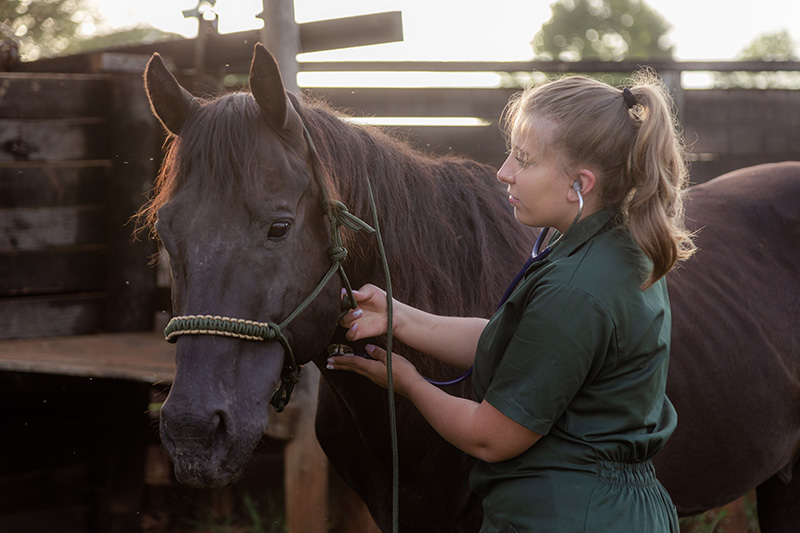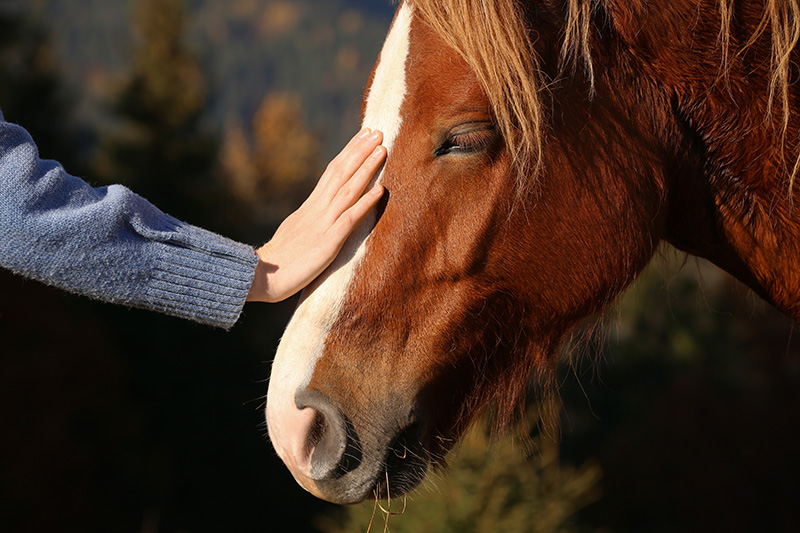
Essential Information on Stomach Ulcers in Horses for GI Health Month
There are several different types of gastric ulcer diseases with a variety of causes that can occur in horses. This group of gastrointestinal health concerns is referred to as Equine Gastric Ulcer Syndrome (EGUS). These ailments are quite common in horses during all stages of life. In fact, an estimated 25-50% of foals and 60-90% of adult horses suffer from some type of EGUS.
What Are the Signs and Symptoms of Equine Stomach Ulcers?
Gastric ulcers do not always produce outwardly noticeable signs and symptoms in horses. However, horses with stomach ulcers can have signs and symptoms including:
- Reduced appetite
- Attitude changes
- Dullness
- Decreased performance
- Poor or diminishing body condition
- Reluctance to train or exercise
- Poor coat condition
- Weight loss
- Low-grade colic
- Girthiness
In severe cases, horses sometimes experience abdominal pain. You might also notice them clenching or grinding their teeth as a way to cope with this pain.

Signs and symptoms in foals can be slightly different from those exhibited in adult horses. These include:
- Intermittent colic after meals
- Reduced nursing or poor appetite
- Reclining on their backs
- Pot-bellied appearance
- Excessive salivation
- Teeth grinding
- Diarrhea
Gastric ulcers in foals that result in noticeable symptoms are a serious matter and require immediate care.

Diagnosing Stomach Ulcers in Horses
The only way to definitively diagnose stomach ulcers in horses is with a diagnostic gastroscopy. During this procedure, a veterinarian inserts an endoscope into a horse’s gastrointestinal system via the mouth to view the tissues lining the stomach. During an endoscopy, a veterinarian can visually confirm the presence of stomach ulcers and their nature or severity.
What Are the Treatments for Stomach Ulcers in Horses?
Only one treatment for stomach ulcers in horses has been approved by the FDA, a prescription medication called omeprazole. This medication comes in a paste form that is administered daily. In addition to omeprazole, another medication (sucralfate) can be prescribed to help ease the painful symptoms of ulcers in horses to provide some relief.
There are also some additional strategies that can help to manage stomach ulcers in horses which include lower-intensity exercise, training adjustments, and some nutritional changes.


Expert Equine Veterinary Care in Tucson, Arizona
At Adobe Veterinary Center, our equine veterinarians specialize exclusively in the care of horses. We are experienced in detecting, diagnosing, and treating EGUS in horses. If your horse is exhibiting any signs or symptoms of stomach ulcers or if you’ve noticed a decrease in your horse’s performance, we strongly encourage you to schedule an examination.







